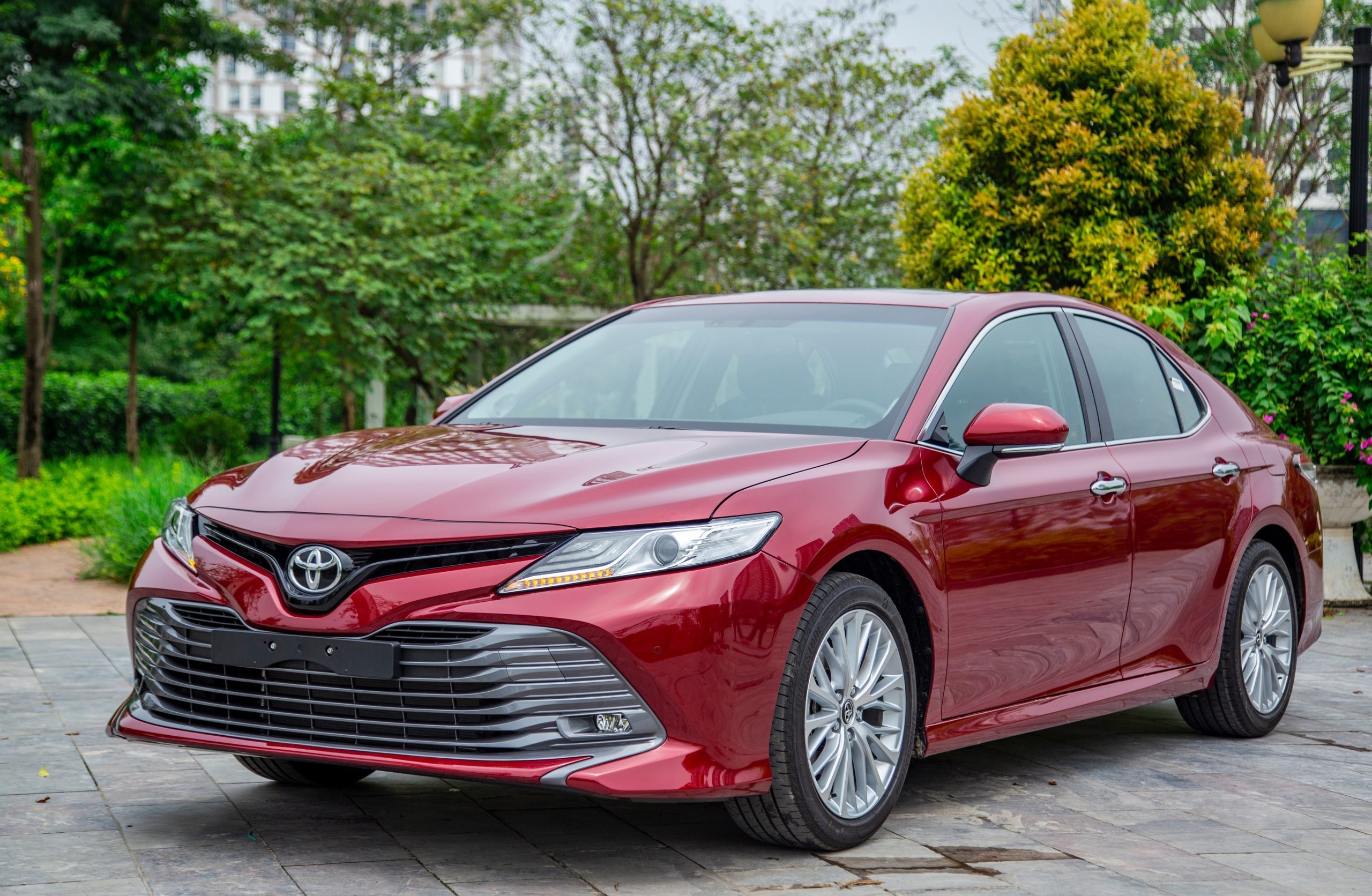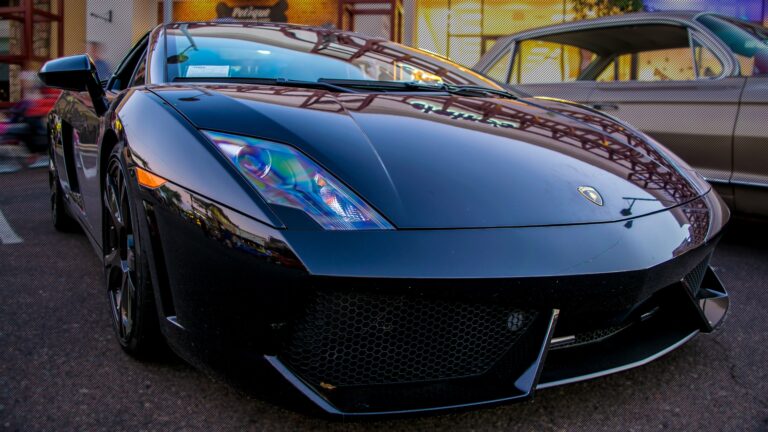Car Brands From France: A Legacy of Innovation, Style, and Comfort
Car Brands From France: A Legacy of Innovation, Style, and Comfort cars.truckstrend.com
France, a nation synonymous with haute couture, exquisite cuisine, and artistic flair, has also profoundly shaped the global automotive landscape. French car brands are more than just manufacturers; they are purveyors of a distinct philosophy that blends innovative engineering with an unwavering commitment to design, comfort, and a touch of the unconventional. From the practical family car to the pinnacle of hypercar performance, French automotive excellence offers a unique blend of characteristics that set it apart. This article delves into the rich history, defining features, and future trajectory of the most iconic car brands from France, offering a comprehensive guide to understanding their enduring appeal.
The Pillars of French Automotive Excellence
Car Brands From France: A Legacy of Innovation, Style, and Comfort
For over a century, a handful of names have dominated the French automotive scene, becoming household names not just in their home country but across continents. These brands have continuously pushed boundaries, adapting to changing times while retaining their core identity.
Peugeot: The Lion’s Roar of Resilience and Refinement
Founded in 1810 as a coffee mill and bicycle manufacturer, Peugeot’s automotive journey began in 1889, making it one of the oldest car brands in the world. Known for its iconic lion emblem, Peugeot has historically championed robustness, reliability, and engaging driving dynamics.
- History & Evolution: From its early successes in motorsport to its pioneering role in mass production, Peugeot has consistently delivered vehicles that combine practicality with a touch of sophistication. The legendary "200" and "300" series (e.g., 205, 306, 208, 3008) have defined segments, offering stylish and well-built alternatives.
- Design Philosophy: Modern Peugeots are instantly recognizable by their sharp lines, distinctive "lion claw" lighting signatures, and the revolutionary i-Cockpit interior. This innovative dashboard layout, featuring a compact steering wheel, raised instrument cluster, and a large touchscreen, prioritizes driver engagement and a futuristic feel.
- Recent Developments: Peugeot has successfully pivoted towards SUVs (3008, 5008) and is aggressively pursuing electrification, with electric variants across its range (e.g., e-208, e-2008) and a clear roadmap for a fully electric future. Its rallying heritage also continues to inspire performance and durability.

Citroën: The Avant-Garde Innovator
Citroën, founded by André Citroën in 1919, quickly established itself as a beacon of innovation and daring design. Its history is replete with groundbreaking technologies that redefined automotive engineering.
- Revolutionary Spirit: Citroën’s legacy includes the Traction Avant (the first mass-produced unibody car), the iconic 2CV (a symbol of utilitarian brilliance), and the legendary DS (often hailed as one of the most beautiful and technologically advanced cars ever made, featuring hydropneumatic self-leveling suspension).
- Comfort Focus: More than any other brand, Citroën has made passenger comfort its paramount concern. This is evident in its current "Advanced Comfort" program, which incorporates progressive hydraulic cushions, comfortable seats, and meticulous acoustic insulation across its range (e.g., C3, C4, C5 Aircross).
- Unique Design: Citroën vehicles often stand out with their quirky, unconventional, and highly individualistic designs. From the Airbumps on the C4 Cactus to the distinctive front fascias, Citroëns are designed to be noticed. The recent launch of the Ami, a tiny electric quadricycle, further exemplifies its commitment to innovative urban mobility solutions.

Renault: The People’s Car with a Sporting Edge
Established in 1898 by the Renault brothers, Renault has grown into one of Europe’s largest automotive groups, known for its diverse range, mass-market appeal, and strong motorsport involvement.
- Broad Appeal: Renault has mastered the art of creating vehicles for every segment, from popular superminis like the Clio and compact cars like the Mégane to versatile SUVs like the Captur and Arkana. Its vehicles are typically known for their practicality, efficiency, and contemporary design.
- Innovation for the Masses: Renault has a history of democratizing technology, bringing features like turbocharging and multi-purpose vehicles (MPVs) to the mainstream (e.g., the revolutionary Espace).
- Electric Vehicle Leadership: Renault was an early pioneer in electric vehicles, with models like the Zoe becoming one of Europe’s best-selling EVs. It continues to invest heavily in electrification, with new models like the Mégane E-Tech Electric leading its charge into the future.
- Motorsport Heritage: With a formidable presence in Formula 1 and other racing series, Renault leverages its motorsport expertise to enhance engine technology, performance, and brand image.

Beyond the Big Three: Niche and Luxury Brands
While Peugeot, Citroën, and Renault form the backbone of the French automotive industry, France is also home to specialized brands that cater to luxury and performance enthusiasts.
DS Automobiles: The New Face of French Luxury
Born out of Citroën’s premium lineage, DS Automobiles became a standalone luxury brand in 2014. It aims to embody the spirit of the original DS, blending avant-garde design, meticulous craftsmanship, and advanced technology.
- Distinctive Identity: DS models (e.g., DS 3 Crossback, DS 4, DS 7 Crossback, DS 9) are characterized by their bold, sculptural designs, intricate detailing, and luxurious interiors featuring premium materials like Nappa leather and Alcantara.
- Technological Sophistication: DS vehicles incorporate cutting-edge technology, including advanced infotainment systems, sophisticated driver-assistance features, and a strong emphasis on plug-in hybrid and electric powertrains.
- "Spirit of Avant-Garde": DS strives to differentiate itself through a unique approach to luxury, focusing on comfort, refinement, and a distinctly Parisian sense of style.
Alpine: The Rebirth of a French Sports Car Legend
Alpine, originally founded by Jean Rédélé in 1955, gained fame for its lightweight, agile sports cars, particularly the A110 "Berlinette." After a hiatus, the brand was successfully revived by Renault in 2017.
- Pure Driving Pleasure: The modern Alpine A110 embodies the original’s philosophy: a lightweight, mid-engined, rear-wheel-drive sports car focused on agility and driver engagement rather than brute power.
- Motorsport Roots: Alpine maintains a strong connection to motorsport, including its presence in Formula 1, which reinforces its performance credentials and technological prowess.
Bugatti: The Pinnacle of Hypercar Exclusivity
Though headquartered in Molsheim, France, and founded by Italian-born Ettore Bugatti, Bugatti is unequivocally a French luxury and performance icon. Now part of a joint venture between Rimac and Porsche, it remains the ultimate symbol of automotive extravagance.
- Unrivaled Performance: Bugatti is renowned for creating some of the fastest, most powerful, and most exclusive cars in the world, exemplified by the Veyron and Chiron. These hypercars push the boundaries of automotive engineering, achieving speeds previously thought impossible.
- Art and Engineering: Each Bugatti is a masterpiece of engineering and design, handcrafted with meticulous attention to detail and utilizing the finest materials. They represent the fusion of automotive artistry and extreme performance.
Distinctive Characteristics of French Cars
Beyond individual brand philosophies, French cars share certain overarching traits that define their collective identity:
- Design & Style: French vehicles are often celebrated for their daring, elegant, or quirky designs. They rarely conform to bland, conservative aesthetics, embracing individuality and a strong sense of national character.
- Comfort & Ride Quality: Historically, French cars have prioritized a supple, comfortable ride, often absorbing road imperfections with remarkable ease. This focus on "cocooning" the occupants is a hallmark, alongside ergonomic seating and refined interior acoustics.
- Innovation & Technology: From hydropneumatic suspension to modern i-Cockpits and early EV adoption, French brands have a strong track record of technological innovation aimed at improving safety, efficiency, and the driving experience.
- Efficiency & Practicality: Many French models, especially in the compact and supermini segments, are designed with urban environments in mind, offering excellent fuel economy, compact dimensions, and clever interior packaging.
The French Automotive Industry Today and Tomorrow
The French automotive industry is currently dominated by two major groups: Stellantis (which includes Peugeot, Citroën, and DS, alongside Fiat, Chrysler, Opel, etc.) and the Renault Group (Renault, Dacia, Alpine). Both groups are navigating a period of profound transformation, driven by electrification, autonomous driving, and increasing global competition. French brands are well-positioned for the future, leveraging their distinct design language, commitment to comfort, and growing expertise in electric vehicle technology.
Practical Advice and Actionable Insights
If you’re considering a French car, here’s what to keep in mind:
- Embrace the Unconventional: French cars often offer a refreshing alternative to German or Japanese counterparts, providing unique design, superior comfort, and a distinctive driving experience.
- Explore Their EV Offerings: French brands are leaders in electric vehicle adoption and offer compelling electric options across various segments, often with competitive range and charging capabilities.
- Consider Comfort: If ride quality and interior comfort are high on your priority list, French brands, particularly Citroën and DS, are excellent choices.
- Value Proposition: Many French models offer a strong value proposition, combining desirable features and stylish design at competitive price points.
Concluding Summary
Car brands from France represent a vibrant and indispensable part of the global automotive tapestry. With a legacy built on innovation, a penchant for distinctive design, and an unwavering dedication to passenger comfort, Peugeot, Citroën, Renault, DS Automobiles, Alpine, and Bugatti each contribute to a rich and diverse automotive heritage. As the industry shifts towards electrification and new mobility solutions, these French marques continue to adapt, proving their resilience and ensuring that the "French touch" in automotive engineering and design will endure for generations to come.
Price Table: Representative French Car Models (Approximate Starting Prices)
| Brand | Representative Model | Type | Approx. Starting Price (EUR) | Approx. Starting Price (USD) | Key Feature / Characteristic |
|---|---|---|---|---|---|
| Peugeot | 208 | Supermini | €22,000 | $25,000 | Stylish design, i-Cockpit, available electric (e-208) |
| Peugeot | 3008 | Compact SUV | €35,000 | $38,000 | Bold SUV styling, premium interior, comfortable ride |
| Citroën | C3 | Supermini | €19,000 | $22,000 | Quirky design, focus on comfort, customizable |
| Citroën | C5 Aircross | Compact SUV | €32,000 | $35,000 | Class-leading comfort (Progressive Hydraulic Cushions) |
| Renault | Clio | Supermini | €20,000 | $23,000 | Practical, efficient, modern tech, strong hybrid options |
| Renault | Megane E-Tech Electric | Compact EV | €40,000 | $45,000 | Dedicated EV platform, futuristic design, long range |
| DS Automobiles | DS 3 Crossback | Small Premium SUV | €35,000 | $38,000 | Distinctive luxury, intricate detailing, available electric |
| DS Automobiles | DS 7 Crossback | Premium SUV | €45,000 | $50,000 | Avant-garde luxury, refined interior, advanced tech |
| Alpine | A110 | Sports Car | €65,000 | $70,000 | Lightweight, agile, pure driving experience |
| Bugatti | Chiron (example) | Hypercar | €3,000,000+ | $3,500,000+ | Ultimate performance, exclusivity, extreme luxury |
Note: Prices are approximate starting MSRPs for new vehicles and can vary significantly based on trim level, options, regional taxes, incentives, and currency exchange rates. Used car prices will differ greatly.
Frequently Asked Questions (FAQ)
Q1: What are the main French car brands?
A1: The three major French car brands are Peugeot, Citroën, and Renault. Additionally, DS Automobiles is a luxury brand spun off from Citroën, and Alpine is Renault’s performance brand. Bugatti, though internationally owned, is historically and geographically a French hypercar manufacturer.
Q2: Are French cars reliable?
A2: Modern French cars have significantly improved their reliability ratings and are generally comparable to other European and Asian brands. They often excel in safety features, comfort, and innovative technology. Regular maintenance is key, as with any vehicle.
Q3: What are French cars known for?
A3: French cars are primarily known for their distinctive and often avant-garde design, exceptional ride comfort, innovative technological features (historically and presently), and focus on fuel efficiency and practicality, especially in smaller segments.
Q4: Do French brands make electric cars?
A4: Yes, absolutely. French brands are at the forefront of the electric vehicle revolution. Renault was an early pioneer with the Zoe, and both the Stellantis group (Peugeot, Citroën, DS) and Renault Group now offer a wide range of fully electric and plug-in hybrid models across their lineups.
Q5: Are French cars expensive to maintain?
A5: The cost of maintenance for French cars is generally comparable to other mainstream European brands. Parts availability is good in most markets, and many models share platforms and components within their respective groups (Stellantis or Renault Group), which can help with service costs.





